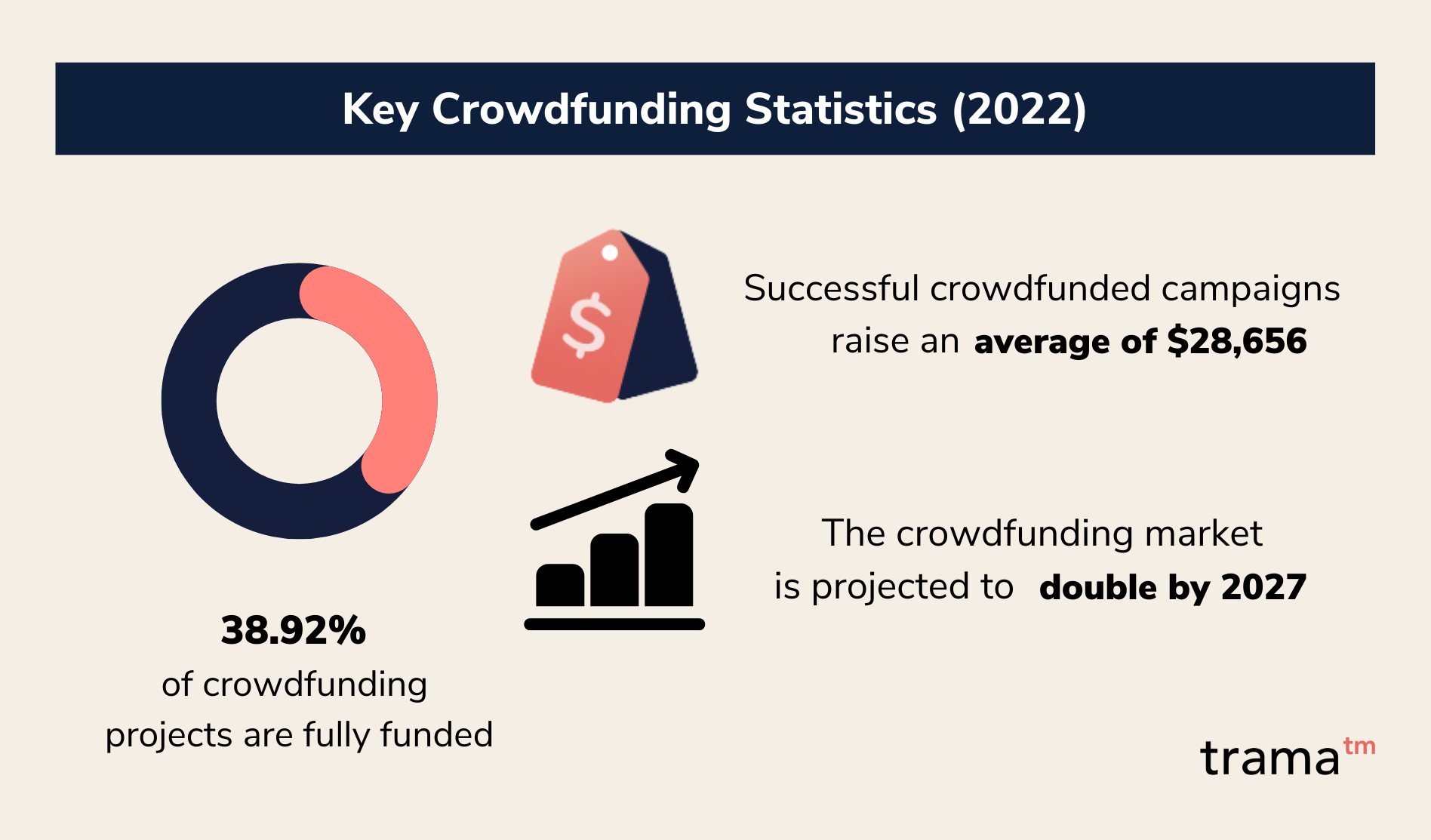What is crowdfunding?
Crowdfunding is the use of small amounts of capital from a large number of individuals to finance a new business venture. Crowdfunding platforms allow people to raise money for various causes, including entrepreneurship, art, and charity. The principle behind crowdfunding makes use of the easy accessibility of vast networks of people through social media and crowdfunding websites to bring investors and entrepreneurs together, with the potential to increase entrepreneurship by expanding the pool of investors beyond the traditional circle of owners and venture capitalists. Some of the best crowdfunding platforms currently out there are Indiegogo, Kickstarter, StartEngine, and Patreon. According to research conducted by Zippia, 22.4% of all crowdfunding operations are successful. However, many campaigns do get financed, even if unsuccessful. In total, 38.92% of crowdfunding projects are fully funded. Since its inception, Kickstarter has had 211,462 successful projects out of 541,874. Of these successful projects, 606 raised over a million dollars, while 8,424 raised anywhere between $100K to just under a million. Most projects, however, raised between $1,000 and $9,999.

Source: Zippia
Value of trademark protection in crowdfunding
Trademark registration is increasingly becoming a key requirement for obtaining funding from investors as well as from crowdfunding platforms. Trademark is a brand sign, such as a company name or logo, capable of distinguishing the goods or services of one company from the goods or services of other companies. A brand is what resonates with customers, signalling the proposition, quality, price and trust associated with given goods and services. Trademark registration offers an effective mechanism for protecting the uniqueness of this vital asset of any business. Brand protection in the form of trademark registration provides positive monetary value, signalling a positive message to investors. Learn more about reasons why startups should think about trademark registration from the very start.
Not registering your integral brand assets means leaving them exposed for others to use and register without any consequences. Trademark registration is a deterrent for copycats, and it is the ® symbol that communicates a strong signal that the company is willing to protect its intellectual property. Moreover, the owner of a registered trademark has the right to issue “cease and desist” letters, which provides a quicker and cheaper resolution of any potential disputes and trademark infringement cases.
How to protect a crowdfunded business?
Protecting your business idea on crowdfunding platforms can be tricky, as such platforms are usually used for pre-orders of goods and services, and trademark protection is only available to trademarks that are currently in use in the marketplace. Still, protecting your brand is possible even before the official launch. For example, the United States Patent and Trademark Office (USPTO) provides such an opportunity to entrepreneurs by allowing them to secure their signs before actual use. Business owners that intend to use a trademark in the future may file an intent to use trademark to secure those rights as of the day of filing.
When it comes to trademark registration through the European Union Intellectual Property Office (EUIPO), there is a requirement of “genuine use” in the five years following registration. The business is required to start selling under a registered trademark within five years of registration. If the trademark holder fails to meet this requirement, third parties may challenge the trademark registration on the grounds of non-use, and if this challenge succeeds, the registration may be revoked.
From sketching out the business plan to choosing the name and logo, the whole process requires a lot of time and effort, as nobody would want this amount of planning to go to waste. This is why entrepreneurs should not brush over one of the most important steps in the process of establishing their company – registering a trademark. Based on our years of experience in trademark registration and brand protection services, we have compiled a brief guide for an optimal trademark strategy for emerging companies. Start with a free lawyer’s check today to find out more about how likely your brand is to be successfully registered.


